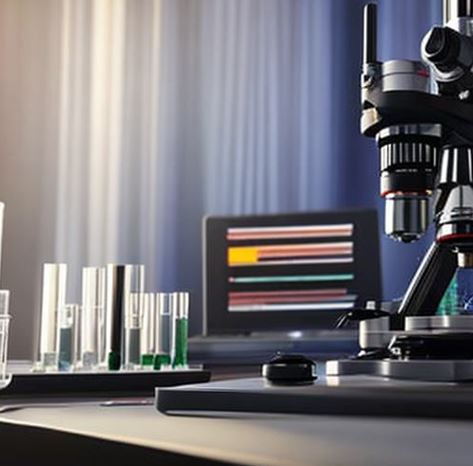Introduction: Welcome to the exciting world of clinical laboratory science! As a laboratory informaticist, I’m thrilled to share with you the myriad benefits of pursuing a career as a Clinical Laboratory Scientist (CLS). From the fascinating work to the positive impact on patient care, let’s dive into the reasons why becoming a CLS can be an excellent choice for aspiring healthcare professionals.
Education Requirements: To embark on the journey as a CLS, you’ll need a solid educational foundation. Typically, a bachelor’s degree in medical laboratory science, clinical laboratory science, or a related field is required. This comprehensive program equips you with the knowledge and skills necessary to excel in a clinical laboratory setting. Courses cover various areas such as clinical chemistry, microbiology, hematology, immunology, and molecular diagnostics.
Salary: Financial stability is a crucial factor when considering a career, and CLS offers competitive compensation. The salary of a CLS varies based on factors such as experience, geographic location, and the employing institution. On average, CLS professionals earn a respectable annual salary ranging from $60,000 to $100,000. Furthermore, specialized certifications and advanced degrees can further enhance earning potential.

Employment Opportunities: One of the most appealing aspects of being a CLS is the diverse array of employment opportunities available. CLS professionals are in high demand across the healthcare sector, including hospitals, private laboratories, research institutions, public health agencies, pharmaceutical companies, and forensic laboratories. The versatility of the profession ensures a stable job market and excellent career prospects.
Duties and Responsibilities: As a CLS, your primary role revolves around performing and analyzing laboratory tests that aid in the diagnosis, treatment, and prevention of diseases. Your duties include:
- Sample Collection and Preparation: You collect and process various types of patient samples, such as blood, urine, tissue, and body fluids, ensuring proper handling and adherence to safety protocols.
- Laboratory Testing: Utilizing state-of-the-art equipment and techniques, you conduct tests on patient samples, ranging from routine blood counts to complex molecular assays. These tests provide critical data that aid physicians in accurate diagnoses.
- Quality Control and Assurance: You ensure the accuracy and reliability of laboratory results by implementing quality control procedures, calibrating equipment, and performing regular maintenance checks. Quality assurance protocols are vital to maintain the highest standards in patient care.
- Data Analysis and Reporting: After obtaining test results, you interpret and analyze the data, generating comprehensive reports that are shared with physicians and other healthcare professionals. Your expertise contributes to the accurate treatment and management of patients.
- Research and Development: As a CLS, you have the opportunity to contribute to scientific advancements by participating in research projects, developing new laboratory techniques, and collaborating with interdisciplinary teams.
Patient Care Impact: Although working behind the scenes, CLS professionals play a pivotal role in patient care. Accurate and timely laboratory results significantly influence medical decisions, aiding healthcare providers in diagnosing diseases, monitoring treatment effectiveness, and guiding patient care plans. By ensuring the accuracy and precision of laboratory testing, CLS professionals directly impact patient outcomes and contribute to improved healthcare delivery.
Conclusion: Becoming a Clinical Laboratory Scientist offers a host of benefits, from a strong educational foundation and competitive salary to a wide range of employment opportunities. The diverse and rewarding nature of the profession, combined with the direct impact on patient care, make it an excellent choice for those passionate about healthcare and scientific exploration. Embark on this exciting journey, and you’ll find yourself at the forefront of medical advancements, making a tangible difference in the lives of countless individuals.

Salary Information for Arizona
How much does a Clinical Laboratory Scientist make in Polacca, AZ? The average Clinical Laboratory Scientist salary in Polacca, AZ is $65,668 as of , but the salary range typically falls between $53,083 and $75,356. Salary ranges can vary widely depending on many important factors, including education, certifications, additional skills, the number of years you have spent in your profession.